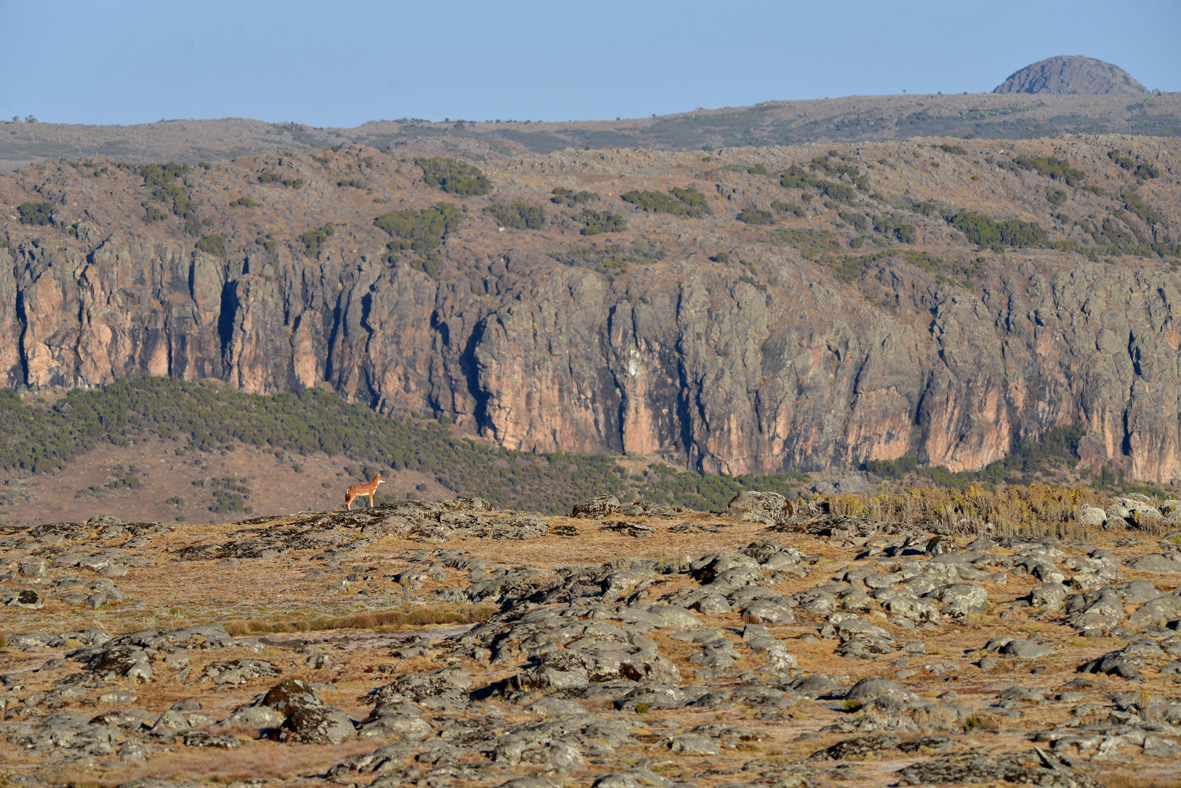

We are used to responding to large-scale threats to the wolves, like habitat loss and disease, but the acts of individuals can have a real impact, both good and bad. We have recently seen a worrying resurgence in behaviours that can threaten wolf survival.
The Bale Mountains National Park is a wildlife haven, a vast stretch of Afroalpine ecosystem supporting diverse vegetation types and unique high altitude endemics. Over 50 Ethiopian wolf families call Bale home, roaming above the clouds across the Sanetti Plateau, the Peaks Area, Morebawa, and lower down in the prime habitat of the Web Valley.

Although 2019 saw deadly back-to-back outbreaks of rabies and canine distemper that killed many wolves, Bale’s wolf packs have stayed resilient. Almost all breeding pairs survived and most were able to breed successfully. Wolf monitors were pleased to discover that, in the Web Valley alone, at least six packs had puppies - fresh hope for each pack’s future. There was, however, another much more worrisome discovery.
In Hangafo, monitors found the entrance to the den where the dominant female was nursing her young pups entirely blocked off with heavy rocks. With no evidence of their escape, the team presumed that the four puppies they knew to be living there had sadly not survived. Nevertheless, they worked hard to remove the obstruction and unblock the den, then reported the incident to the park authorities – the wolves are legally protected in Ethiopia and the blocking of the den is a criminal act.
That wasn’t the end of the story though; the monitors’ efforts were rewarded towards the end of the month with a sighting of not only the dominant Hangafo female but also her four puppies! No one is sure if the puppies had escaped the den previously or had been released by the monitors clearing the entrance but their survival was celebrated by all. A welcome news, and promising for the recovery of the Bale population.
Unfortunately this was not the only incident in Bale this year. The Tarura pack also suffered from human disturbance when a tour guide led a tourist group very close to the pack’s den. Consequently, the female abandoned the den the next day, moving her pups to a new location. Wolves will occasionally abandon one den for another as a tactic to confuse potential predators and reduce parasite load, but every time wolf pups are taken out into the open like this their lives are put in danger.
The peak of the tourist season in the Bale Mountains coincides with the wolves’ breeding season and when pups are being reared. Guides are facing increasing pressure from their clients to approach dens, raising the risk of disturbing wolves and affecting the survival of puppies. Tourism and appreciation of Ethiopian wolves are extremely important for local people and promoting wolf conservation, so we must work on solutions that protect wolves without detracting from the benefits of these.
Den blocking and disturbance are not new issues. Both have been seen in Bale’s Sanetti plateau and Web Valley in previous years, and their persistence is concerning; however, we are optimistic that our community engagement and education work will help reduce misconceptions about wolves.
We will continue to work closely with National Park staff to record incidents like these and promote the importance of responsible guiding and tourism.